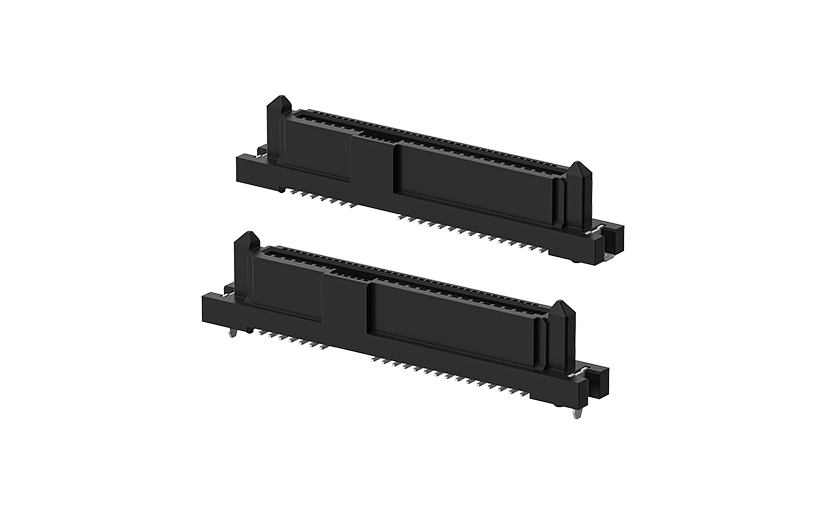With the improvement of computer network and data storage device performance
Connectors used to connect devices and data storage modules
Facing multiple challenges such as compatibility, stability, and transmission efficiency
Product Overview
TXGA SAS connector, with gold plated contacts of 0.375 μ m and a transmission rate of 24Gb/s, complies with SAS 4.0 technical specifications. The product is easy to use and supports backward compatibility with different versions, meeting the compatibility, stability, and efficient transmission requirements of the device for connectors.
Product Features
High speed transmission
Adopting a serial full duplex communication protocol, bidirectional data transmission can be carried out simultaneously, with a transmission speed of 24Gb/s, meeting the efficient data transmission requirements of devices.
Stable and reliable
The two products are respectively equipped with stamping clips and positioning harpoon structures. After welding and fixing, it can provide additional PCB connection strength for the connector, effectively avoiding the risk of looseness between the connector and the PCB board.
compatibility
The product complies with the SAS 4.0 specification, supports SAS and SATA drives, and is backward compatible with versions 3.0, 2.0, and 1.0 of SAS connectors, making it more flexible for users to use.
Easy to operate
The product is equipped with a guiding structure, which can prevent the connector from shifting during insertion and facilitate blind insertion. At the same time, the product supports hot swapping function, allowing users to safely plug and unplug connectors while the device is running, reducing downtime for maintenance.
Product specifications
Contact spacing 1.27mm
application area
-Solid state drive
-Switch
-Server
-Workstation
-RAID (Independent Redundant Disk Array)
